Some anglers know Todd Tanner as the author of hundreds of fly fishing stories, essays and columns. Others know him as a serious conservationist and the President of Conservation Hawks. Still others know him as the founder of the School of Trout—the sport's preeminent instructional program which harnesses the fly fishing prowess of an impressive roster of presenters and instructors including folks like Tom Rosenbauer, John Juracek, Kirk Deeter, Craig Matthews, Bob White, Hilary Hutcheson, Brant Oswald, and Tanner himself, just to name a few. The long-time fly fisher, who has written extensively for publications like Sporting Classics, Hatch Magazine, Newsweek and The New York Times over the years, recently answered a variety of angling-related questions.
HATCH MAGAZINE: Who was president when you started fly fishing?
Todd Tanner: Some folks might guess Calvin Coolidge, but I’m not quite that old. I started bait fishing and spin fishing as a wee lad when Lyndon Johnson was president — not all that long after President Kennedy was assassinated — and I began fly fishing during the first Bush administration.
HM: Who taught you to fly fish?
TT: While I remember taking a mid-winter TU class that discussed some of the basics, and while I read a fair number of books and magazine articles, nobody ever took me out on the water and told me where to cast or how to fish. I just sort of figured it out as I went along. Which means that at one time or another I’ve made pretty much every single fly fishing mistake it’s possible to make.
HM: How would you describe yourself as an angler?
TT: Hmmmm … I guess you could say that I’m passionate, and driven, and inquisitive, and focused — and quite possibly addicted. I’ve had years in the past where I was on the water maybe 300 days, which is more than most normal people would ever consider. I eventually learned that fly fishing is much less about big fish, or lots of fish, and much more about enjoying my time in nature and wandering around with a smile on my face.
HM: What are your favorite waters?
TT: I really like the Dean for steelhead, and I’m a big fan of the Missouri near the little town of Craig, Montana. I’m also a sucker for spring creeks. And I love the freestone rivers just over the Canadian border in British Columbia and Alberta. My all-time favorite water, though, is the Henry’s Fork. I guided there for five years in the early-to-mid ‘90s. When the conditions are right, the Henry’s Fork is as close to perfect as a river can be.
HM: What are the three most important fly fishing skills, and which skills do you still need to work on?
More Like This
TT: Awareness, fly casting, and presentation. If you’re able to discern what’s happening around you when you’re out on the water, and if you can cast effectively enough to put your fly exactly where you want it to land, and if you can present that fly in a way that convinces the fish to eat it … well, the odds are excellent that you’re going to be an effective angler.
As for which skills I need to improve … nobody is as good at awareness as they need to be. That’s a given. We can all improve there. And while my casting is very good, it’s not perfect. Since I run a fly fishing school, it’s incumbent upon me to listen to my head fly casting instructor — the incomparable John Juracek — and continue to hone my casting skills.
HM: If you could only fish with one fly rod in 2023, which one would you choose?
TT: That’s easy. Montana Brothers is coming out with a 9’ 5 weight in 2023. If it’s half as good as their 9’ 4 weight, I’d have no choice but to choose the Montana Brothers 905.
HM: If you could take a week or ten days and fish anywhere in the world in 2023 — for free — where would you go?
TT: Wow, that’s a tough one. I’d have to give serious consideration to New Zealand, which by all accounts has wonderful fishing as well as some of the most awesome scenery on the planet. At the same time, I’ve never fished for Atlantic salmon and I’d truly enjoy flying to Iceland and seeing if I could tempt a salmon or two to the fly. Either one would be wonderful. That said, I’m usually pretty content to fish within a day’s drive of my Montana home.
HM: Six incredible anglers you’ve fished with in the past?
TT: Only six? Okay. Craig Mathews, who is not only a great angler but also a wonderful human being. Leon Chandler, who was known as America’s fly fishing ambassador to the world, and who was one of the most beautiful casters, and wonderful people, I’ve ever met. Rene` Harrop, who, in addition to being the ultimate predator, seems to have a river running through his soul and Henry’s Fork spring water pulsing through his veins. Pat McCabe, because he’s one of my favorite people on the planet as well as an outstanding angler. Steve Mate, who you’ve likely never heard of, but who knows more about fly fishing, and catching trout, than any ten “experts” you might name. Finally, Tom Rosenbauer. And not because Tom is such a talented angler, or because he’s the face of Orvis fly fishing, but because he still has such an incredible passion for the sport after all these years.
HM: Three people you’ve never fished with, but who you’d really like to wet a line with in the future?
TT: John Juracek. John is one of the most beautiful casters I’ve ever seen, and who knows? Maybe a little bit of John’s casting excellence would rub off on me if we spent enough time standing next to each other on the river. Bob White, the artist, because I’d love to learn to see through Bob’s eyes. I have no doubt a stellar artist like Bob sees the water differently than the rest of us. And Kirk Deeter, who, more than anyone else I know, has his finger on the pulse of fly fishing in this modern age. While he doesn’t call it by this particular name, Kirk is trying to incorporate the idea of sustainability into fly fishing. I’m not naturally inclined towards moderation, but we’ve probably reached the point where we don’t have much choice right now. We have to take a more sustainable approach to our angling.
HM: Drift boats or wading?
TT: Not even close. Sitting in a boat is fun, but I love to wade in moving water. Standing in the river is nothing less than a personal baptism in nature; a balm for the soul. Boats can’t really compare …
HM: Dry flies, nymphs or streamers?
TT: Dry flies, 100%. Nymphs, wet flies and streamers are great ways to catch fish. They’re very effective. But dry flies require artistry; dry flies are where the fly rod truly shines and the most talented fly fishers excel.
HM: The best companies in the fly fishing industry?
TT: Two come to mind. Patagonia and Orvis. They both make great gear and, more importantly, they are both focused on conservation and protecting our aquatic habitats for future generations. There are definitely other excellent companies out there, but Orvis and Patagonia are the cream of the crop.
HM: Who are your favorite fly fishing writers?
TT: I don’t read as much fly fishing content as I used to, so I won’t be as up-to-date as some other folks. That said, here are a few. John Gierach, who is my all-time favorite. Roderick Haig-Brown. Nick Lyons. Tom McGuane. Gary LaFontaine. Seth Norman. Jim Harrison. Norman Maclean. Tom Davis, when he writes about fly fishing rather than bird hunting. Among more recent authors, I’m impressed with Tim Schulz, who writes beautifully, and Johnny Sain, who invariably gets to the heart of things.
HM: Would you rather write about fly fishing tactics, or fly fishing destinations, or fly fishing in general?
TT: Would you, as a reader, rather sit down with an essay or novel, or would you rather read a text book? As a writer, I’d much rather delve into the “why’s” of fly fishing, and into the idiosyncrasies of the sport, as opposed to destinations or tactics. It’s just way more interesting for me at this point in my life.
HM: What is the biggest change you’ve seen in fly fishing since you first got started?
TT: I used to bump into a ton of anglers who took up fly fishing because it was eclectic, and unusual, and a fair distance off the beaten path compared to other outdoor activities. I always thought of fly fishing as the angling equipment of archery; archery during the long bow and recurve bow era, before compound bows arrived on the scene. Now it seems like more and more people view fly fishing as simply another angling option, with more emphasis on catching fish and less emphasis on the beauty and grace inherent in the sport. From where I sit, that’s not necessarily the best thing in the world …
HM: What are the biggest threats to fly fishing?
TT: If you’re paying attention, you already know that we’re trashing the natural world in a variety of ways, with human-caused climate change being the largest and most pervasive of our current abuses. Sadly, our rivers & streams are already suffering the same negative impacts as our landscapes. Unless we get our act together and begin to treat nature with far more respect, it’s hard to see how our children and grandchildren will enjoy fly fishing 40 or 50 years from now. Every angler worthy of the name should commit to protecting and preserving the places we fish — and that includes voting for candidates who will do the same, and voting against politicians who look at the natural world as a resource to be plundered and sold off.
HM: You run the School of Trout. What do you enjoy most about teaching?
TT: I love the fact that our School of Trout students tend to be more passionate about their angling than other folks. They come in with a desire to learn, and to understand, and to grow, and to see if fly fishing might offer something that they can’t easily find elsewhere. As instructors, we get to share our personal experiences, and whatever small talents and wisdom we possess, with folks who soak it all up like sponges and invariably ask for more. What’s not to love? It’s a wonderful experience for everyone involved.
HM: What else would you like to pass along to our readers?
TT: So many of us are cut off from nature. It almost seems as if it’s a cultural thing. We’re more comfortable sitting on the couch or staring at a screen than we are wading thigh-deep into the real world. Fly fishing is so important because it’s a direct path to the beating heart of nature. There just aren’t that many activities that combine natural beauty and the potential for excitement with something as sublime and wonderful as grace. That’s something that people should know. It’s possible to attain a state of grace, or at least something very close to it, with a fly rod in your hand.
Thoreau was right when he said: “Many men go fishing all of their lives without knowing that it is not fish they are after.” Harrison nailed it when he wrote: “I stare into the deepest pool of the river which holds the mystery of a cellar to a child, and think of those two-track roads that dwindle into nothing in the forest. I have this feeling of walking around for days with the wind knocked out of me.” Fly fishing, at its best, is a moving meditation — a complete immersion in nature — where the mundane and unimportant are washed away and we’re left living completely in the moment. What an absolutely wonderful gift.



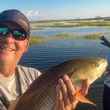
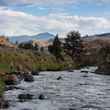
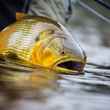
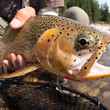

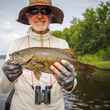
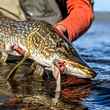
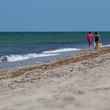
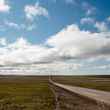

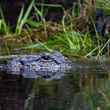

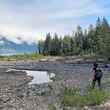
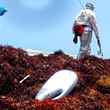

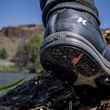
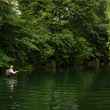
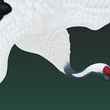
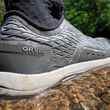

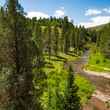
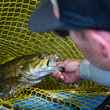
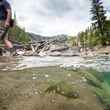
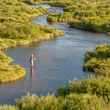

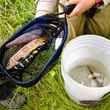
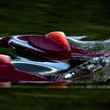
Comments
Dan D replied on Permalink
Great interview. Really enjoyed it!
Pages